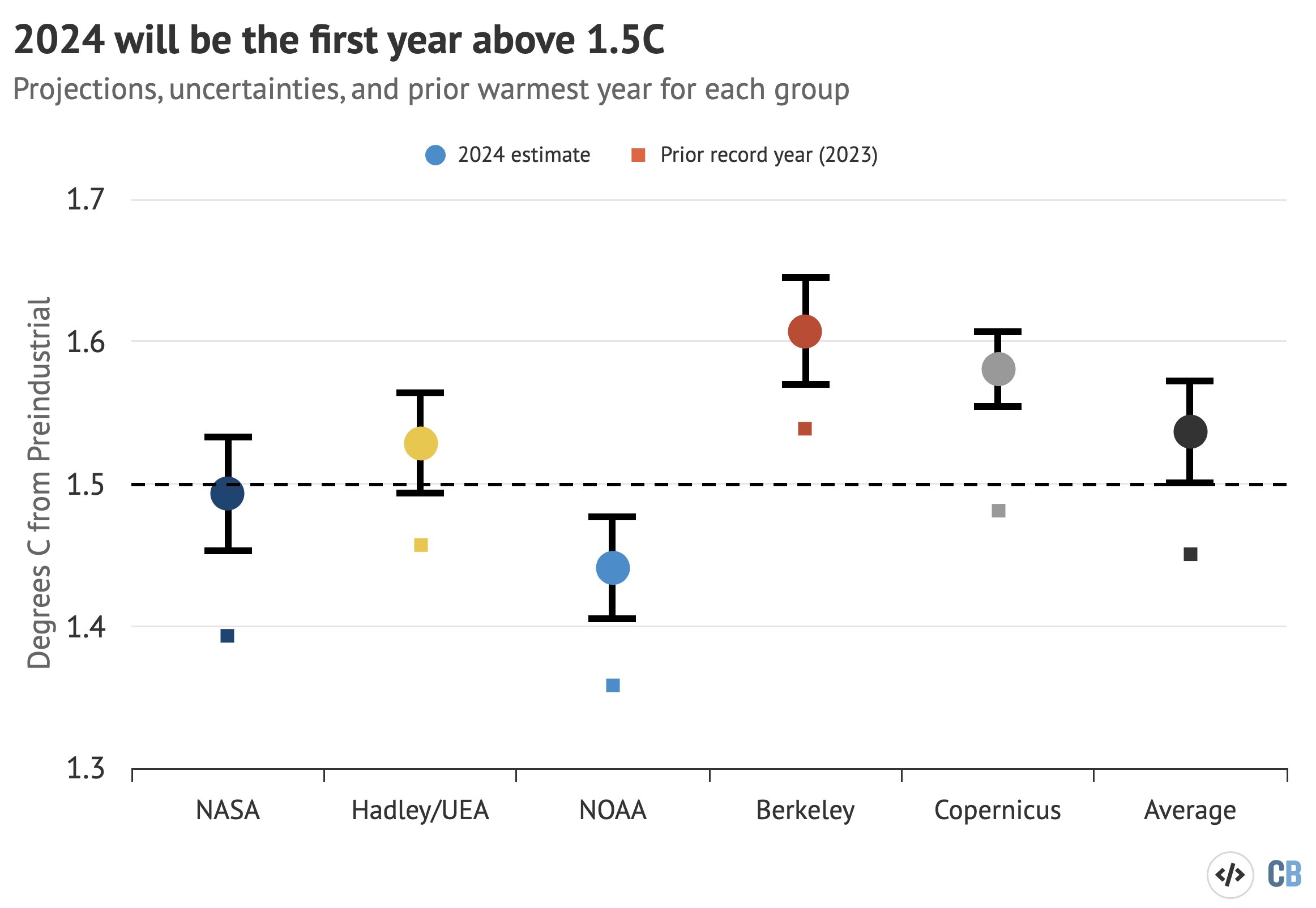this post was submitted on 07 Nov 2024
69 points (100.0% liked)
Science
23486 readers
163 users here now
Welcome to Hexbear's science community!
Subscribe to see posts about research and scientific coverage of current events
No distasteful shitposting, pseudoscience, or COVID-19 misinformation.

founded 5 years ago
MODERATORS
you are viewing a single comment's thread
view the rest of the comments
view the rest of the comments

Fucking lmao. So by the time the politicians are ready to say we’ve breached 1.5, we’ll all be dead. Good to know.
So if the average in 2050 is 1.49 (adjusted for natural fluctuations in the climate) - we're all good?
I assume if there's a massive volcanic eruption and the average is 1.7 - they'll [cough] cook the books and say there's no breach because the eruption was a natural fluctuation in the climate.
No, it's just cope. 1.5 is nonesense. No one except China is taking action on global warming and things are so totally out of control we can't build models that predict the rate of acceleration, let alone the outcome.
Asked a Scripps Institute of Oceanography lecturer over 30 years ago why methane from permafrost melting and the ensuing loop was not being factored in to their models, he said "we were focusing on other things". Guess it must have been too hard?
We just launched some satellites in the last couple of years that are capable of detecting methane plumes in the atmosphere. Before then people were just hauling equipment up there to measure the gasses as they were seeping out. It's difficult and imprecise work.